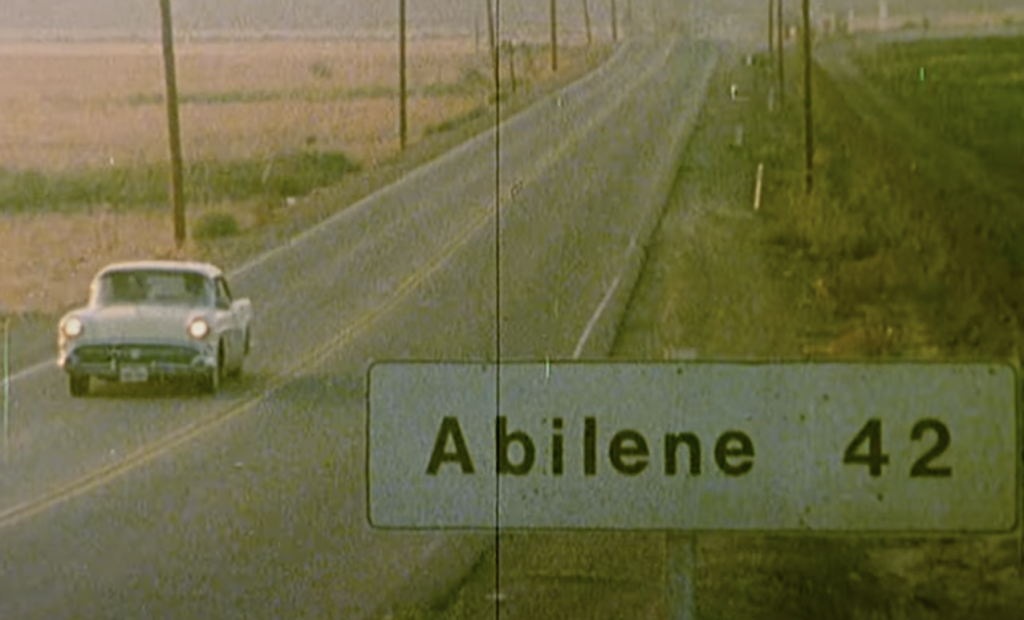
The Abilene Paradox, was first penned by Professor Jerry B. Harvey in 1974 in an article entitled “The Abilene Paradox: The Management of Agreement”. Much later, in 1988 Prof Harvey published a book on the topic entitled “The Abilene Paradox and Other Meditations on Management”.
The Abilene Paradox describes a group of people who collectively decide to take a trip from their home in Coleman, Texas to Abilene, some 53 miles away, to partake in a meal at a quaint local diner The premise of the paradox is that in agreeing to act on the idea and take the trip, put them on a course of action that was counter to the preferences of many or all of the individuals in the group.
The following passage is taken from Organizational Dynamics, Summer 1988, pp. 17–43. © 1988 by the American Management Association, New York – All rights reserved; and was reprinted with permission, by the Aspin Institute.
“The July afternoon in Coleman, Texas (population 5,607) was particularly hot— 104 degrees as measured by the Walgreen’s Rexall Ex-Lax temperature gauge. In addition, the wind was blowing fine-grained West Texas topsoil through the house. But the afternoon was still tolerable—even potentially enjoyable. There was a fan going on the back porch; there was cold lemonade; and finally, there was entertainment. Dominoes. Perfect for the conditions. The game required little more physical exertion than an occasional mumbled comment, “Shuffle ‘em,” and an unhurried movement of the arm to place the spots in the appropriate perspective on the table.
All in all, it had the makings of an agreeable Sunday afternoon in Coleman—this is, it was until my father-in-law suddenly said, “Let’s get in the car and go to Abilene and have dinner at the cafeteria.” I thought, “What, go to Abilene? Fifty-three miles? In this dust storm and heat? And in an unairconditioned 1958 Buick?” But my wife chimed in with, “Sounds like a great idea. I’d like to go. How about you, Jerry?” Since my own preferences were obviously out of step with the rest I replied, “Sounds good to me,” and added, “I just hope your mother wants to go.” “Of course I want to go,” said my mother-in-law. “I haven’t been to Abilene in a long time.”
So into the car and off to Abilene we went. My predictions were fulfilled. The heat was brutal. We were coated with a fine layer of dust that was cemented with perspiration by the time we arrived. The food at the cafeteria provided first-rate testimonial material for antacid commercials.
Some four hours and 106 miles later we returned to Coleman, hot and exhausted. We sat in front of the fan for a long time in silence. Then, both to be sociable and to break the silence, I said, “It was a great trip, wasn’t it?” No one spoke. Finally my mother-in-law said, with some irritation, “Well, to tell the truth, I really didn’t enjoy it much and would rather have stayed here. I just went along because the three of you were so enthusiastic about going. I wouldn’t have gone if you all hadn’t pressured me into it.”
I couldn’t believe it. “What do you mean ‘you all’?” I said. “Don’t put me in the ‘you all’ group. I was delighted to be doing what we were doing. I didn’t want to go. I only went to satisfy the rest of you. You’re the culprits.” My wife looked shocked. “Don’t call me a culprit. You and Daddy and Mama were the ones who wanted to go. I just went along to be sociable and to keep you happy. I would have had to be crazy to want to go out in heat like that.”
Her father entered the conversation abruptly. “Hell!” he said. He proceeded to expand on what was already absolutely clear. “Listen, I never wanted to go to Abilene. I just thought you might be bored. You visit so seldom I wanted to be sure you enjoyed it. I would have preferred to play another game of dominoes and eat the leftovers in the icebox.”
What the Abilene Paradox highlights is an almost universal feeling of needing to propose ideas thought to be desired by others, which are then agreed with, to “not rock the boat”.
This Abilene Paradox seems to play out regularly today by a libertarian society laser focussed on innovation and change, encouraged by a mainstream who desire harmony and are opposed to confrontation. The result is bad ideas supported by people who oppose them but do not feel empowered to speak up for fear of being at odds with the group and needing to back their conviction, possibly through confrontation and debate.
The Abilene Paradox highlights what can happen in business when there is an inability to manage agreement rather than conflict. Couple this with a lack of psychological safety to speak your mind and today’s regression of freedom of speech and this is once again the single most pressing issue facing modern organisations.
Knowing about the Abilene Paradox and that it is prevalent in many group discussions ranging from the example above to the board room and even social and political reform, will hopefully allow you to empathise with others and feel what they feel. While you can never truly know another’s mind, you should always feel empowered to authentically express how you feel without fear of offending others or of their potential ridicule, knowing they are possibly more in agreement with your view than you think.
